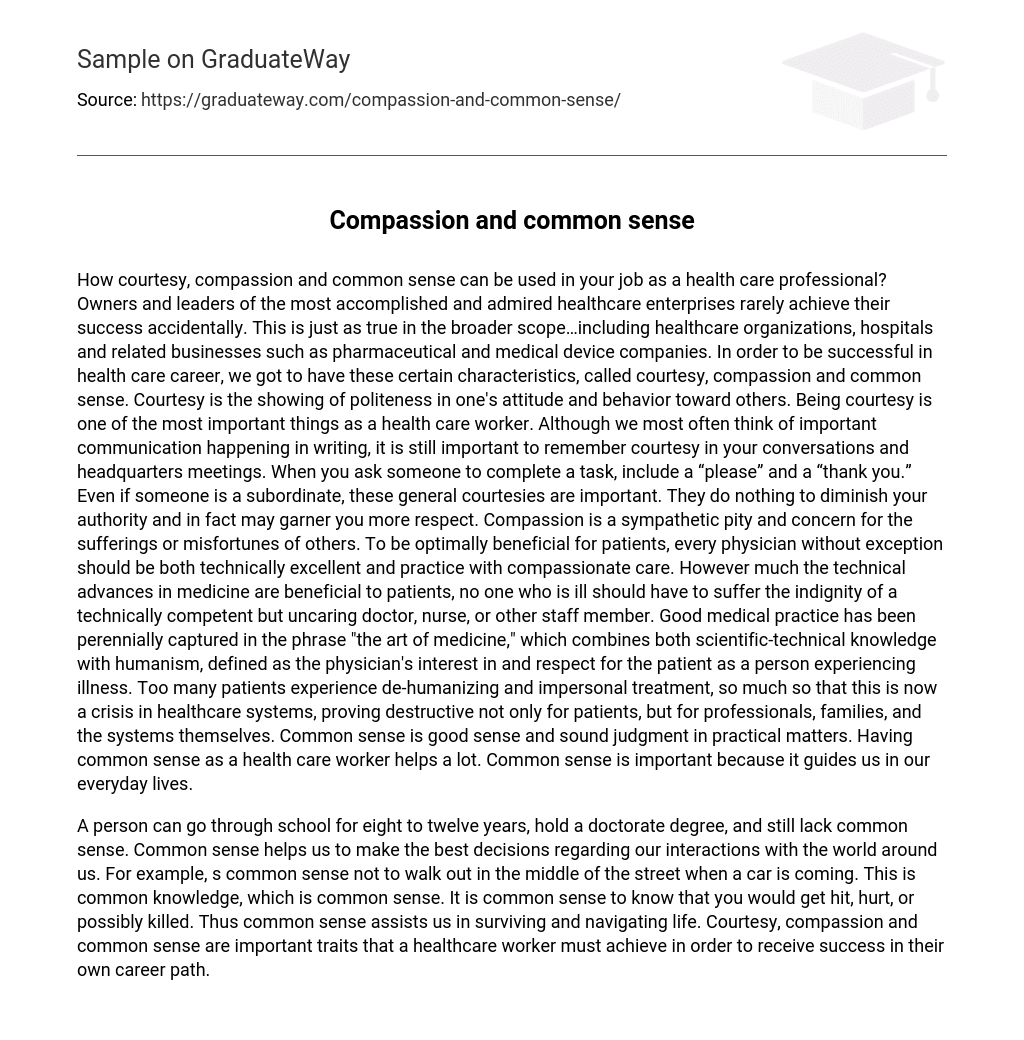How courtesy, compassion and common sense can be used in your job as a health care professional? Owners and leaders of the most accomplished and admired healthcare enterprises rarely achieve their success accidentally. This is just as true in the broader scope…including healthcare organizations, hospitals and related businesses such as pharmaceutical and medical device companies. In order to be successful in health care career, we got to have these certain characteristics, called courtesy, compassion and common sense. Courtesy is the showing of politeness in one’s attitude and behavior toward others. Being courtesy is one of the most important things as a health care worker. Although we most often think of important communication happening in writing, it is still important to remember courtesy in your conversations and headquarters meetings. When you ask someone to complete a task, include a “please” and a “thank you.” Even if someone is a subordinate, these general courtesies are important. They do nothing to diminish your authority and in fact may garner you more respect. Compassion is a sympathetic pity and concern for the sufferings or misfortunes of others. To be optimally beneficial for patients, every physician without exception should be both technically excellent and practice with compassionate care. However much the technical advances in medicine are beneficial to patients, no one who is ill should have to suffer the indignity of a technically competent but uncaring doctor, nurse, or other staff member. Good medical practice has been perennially captured in the phrase “the art of medicine,” which combines both scientific-technical knowledge with humanism, defined as the physician’s interest in and respect for the patient as a person experiencing illness. Too many patients experience de-humanizing and impersonal treatment, so much so that this is now a crisis in healthcare systems, proving destructive not only for patients, but for professionals, families, and the systems themselves. Common sense is good sense and sound judgment in practical matters. Having common sense as a health care worker helps a lot. Common sense is important because it guides us in our everyday lives.
A person can go through school for eight to twelve years, hold a doctorate degree, and still lack common sense. Common sense helps us to make the best decisions regarding our interactions with the world around us. For example, s common sense not to walk out in the middle of the street when a car is coming. This is common knowledge, which is common sense. It is common sense to know that you would get hit, hurt, or possibly killed. Thus common sense assists us in surviving and navigating life. Courtesy, compassion and common sense are important traits that a healthcare worker must achieve in order to receive success in their own career path.





